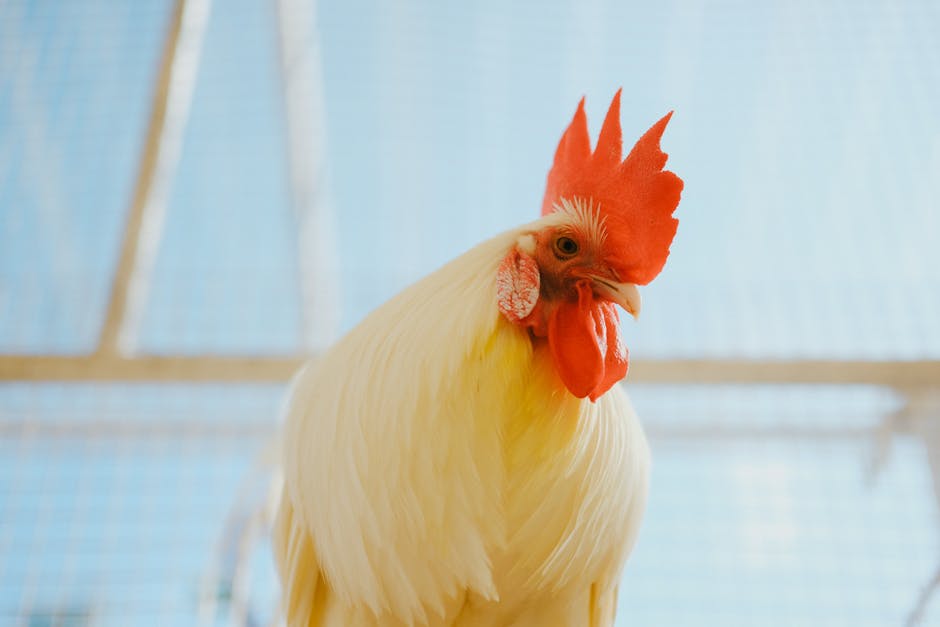Protecting Your Flock: Tips for Preventing Bird Flu
Understanding Bird Flu and its Impact on Flocks

Understanding Bird Flu and its Impact on Flocks
- Avian influenza, commonly known as bird flu, is a highly contagious viral disease that affects birds, including chickens, ducks, and wild birds.
- The impact of bird flu on flocks can be devastating, leading to high mortality rates and significant economic losses for poultry farmers.
- Infected birds may experience symptoms such as respiratory distress, decreased egg production, and sudden death.
- Bird flu can spread rapidly through direct contact with infected birds, contaminated surfaces, or through the air.
- It is crucial for poultry farmers to implement biosecurity measures to prevent the introduction and spread of bird flu on their farms.
Understanding Avian Influenza (Bird Flu)

Avian influenza, commonly known as bird flu, is a highly contagious viral disease that affects birds, including chickens, ducks, and wild birds. It can cause respiratory distress, decreased egg production, and sudden death in infected birds. Bird flu spreads rapidly through direct contact, contaminated surfaces, or the air. Poultry farmers must implement biosecurity measures to prevent its introduction and spread on their farms.
Impact of Bird Flu on Flock Health
Bird flu can have a devastating impact on flock health, leading to respiratory distress, decreased egg production, and even sudden death in infected birds. It is crucial to take preventive measures to protect your flock from this highly contagious disease.
Importance of Biosecurity Measures

Implementing biosecurity measures on your farm is crucial for preventing bird flu, as it helps to minimize the risk of disease transmission and protect the health of your flock. Some key steps you can take include restricting access to your farm, practicing good hygiene and sanitation, monitoring and controlling wild bird populations, and properly disposing of poultry waste.
Implementing Biosecurity Measures on Your Farm

To implement biosecurity measures on your farm, restrict access, maintain good hygiene, monitor wild bird populations, and properly dispose of poultry waste.
Role of Biosecurity in Preventing Bird Flu
To prevent bird flu, biosecurity plays a crucial role by minimizing the risk of disease introduction and spread. Some key measures include limiting farm access, practicing proper hygiene, monitoring wild bird populations, and ensuring proper waste disposal.
Vaccination Strategies for Flock Protection

Types of Vaccines for Bird Flu Prevention include inactivated vaccines, live attenuated vaccines, and recombinant vaccines, each providing different levels of protection against the virus. It is important to consult with a veterinarian to determine the most suitable vaccine for your flock.
Developing a Vaccination Schedule for Your Flock is crucial to ensure timely and effective protection against bird flu. This schedule should consider the age of the birds, their immune status, and any regional disease outbreaks. Follow the manufacturer's instructions and administer vaccines properly to maximize their efficacy.
Regularly assess the efficacy of the vaccination program by monitoring flock health and consulting with a veterinarian. Adjustments may be necessary based on changes in disease prevalence or vaccine performance.
Remember that vaccination alone is not sufficient; it should be complemented with other preventive measures such as biosecurity protocols, hygiene practices, and early detection of sick birds.
Stay updated on the latest research and guidelines from reputable sources like government agencies and veterinary associations to continually improve your flock's protection against bird flu.
Table: Types of Vaccines for Bird Flu Prevention| Vaccine Type| Description|
|-----------------------|------------------------------------------------------------|
| Inactivated Vaccine| Contains killed virus to stimulate an immune response|
| Live Attenuated Vaccine | Contains weakened virus to stimulate an immune response|
| Recombinant Vaccine| Contains modified genetic material to stimulate immunity|
Types of Vaccines for Bird Flu Prevention

Types of Vaccines for Bird Flu Prevention include inactivated vaccines, live attenuated vaccines, and recombinant vaccines, each providing different levels of protection against the virus. It is important to consult with a veterinarian to determine the most suitable vaccine for your flock.
Developing a Vaccination Schedule for Your Flock

Developing a vaccination schedule for your flock is crucial to protect them from bird flu. Consult with a veterinarian to determine the appropriate vaccines and timing for optimal prevention.
Proper Hygiene and Sanitation Practices

To ensure the health of your flock, implement effective cleaning and disinfection protocols to maintain proper hygiene and sanitation practices, preventing the spread of bird flu.
Effective Cleaning and Disinfection Protocols

Implement effective cleaning and disinfection protocols to maintain proper hygiene and sanitation practices, preventing the spread of bird flu. Use appropriate disinfectants and follow recommended cleaning procedures for equipment, surfaces, and facilities. Regularly clean and sanitize water sources, feeders, and bedding materials. Properly dispose of waste to prevent contamination. Inspect and maintain cleanliness in all areas of your flock's environment.
Proper Waste Management to Prevent Bird Flu

Proper waste management is crucial in preventing the spread of bird flu. Regularly remove and dispose of waste to prevent contamination, and ensure that waste storage areas are secure and away from the flock's living environment. Implement proper sanitation practices for cleaning and disinfecting equipment used for waste management.
Identifying and Managing Sick Birds

To effectively identify and manage sick birds, regularly monitor your flock for any signs of illness such as decreased activity, loss of appetite, respiratory distress, or abnormal droppings. Immediately isolate any sick birds and seek veterinary care for proper diagnosis and treatment to prevent the spread of disease within the flock.
Recognizing Symptoms of Bird Flu in Flock

Recognizing Symptoms of Bird Flu in Flock is crucial for early detection and prevention of the disease. Look out for signs such as decreased activity, loss of appetite, respiratory distress, and abnormal droppings. Isolate any sick birds immediately.
Isolation and Treatment of Infected Birds

Isolate infected birds immediately to prevent the spread of bird flu within the flock. Consult a veterinarian for proper treatment and follow their guidance for effective care.
Conclusion and Resources
Conclusion and Resources:
- Always prioritize the health and well-being of your flock by implementing preventive measures.
- Regularly monitor your birds for any signs of illness or infection.
- Isolate infected birds immediately to prevent the spread of bird flu within the flock.
- Consult a veterinarian for proper treatment and follow their guidance for effective care.
- Make use of biosecurity measures such as proper cleaning and disinfection protocols.
- Consider vaccination strategies to protect your flock from bird flu.
- Proper waste management is crucial in preventing the transmission of the disease.
- Stay informed and educate yourself on bird flu prevention through additional resources provided by experts in the field.
Remember, taking proactive steps towards bird flu prevention is essential for safeguarding the health of your flock.
Summary of Preventive Measures Against Bird Flu
Summary of Preventive Measures Against Bird Flu:
- Implement biosecurity measures such as restricted access, disinfection protocols, and proper waste management.
- Vaccinate your flock against bird flu using appropriate vaccines.
- Regularly monitor your birds for any signs of illness or infection.
- Isolate infected birds immediately to prevent the spread of the disease within the flock.
- Consult a veterinarian for proper diagnosis and treatment.
- Educate yourself on bird flu prevention through expert resources in the field.
Additional Resources for Bird Flu Prevention and Control
Additional Resources for Bird Flu Prevention and Control:
- Consult government agencies such as the Centers for Disease Control and Prevention (CDC) for official guidelines on bird flu prevention.
- Stay updated with the latest research and information from reputable sources like the World Health Organization (WHO) and the Food and Agriculture Organization (FAO).
- Join online forums or communities of poultry farmers to exchange knowledge and experiences on bird flu prevention strategies.
- Attend workshops, seminars, or webinars conducted by experts in avian health to enhance your understanding of bird flu prevention.
- Consider partnering with local veterinary professionals who specialize in avian medicine for personalized guidance on preventing bird flu.
(Note: Content ends here. No additional notes or disclaimers needed.)

Comments
Post a Comment